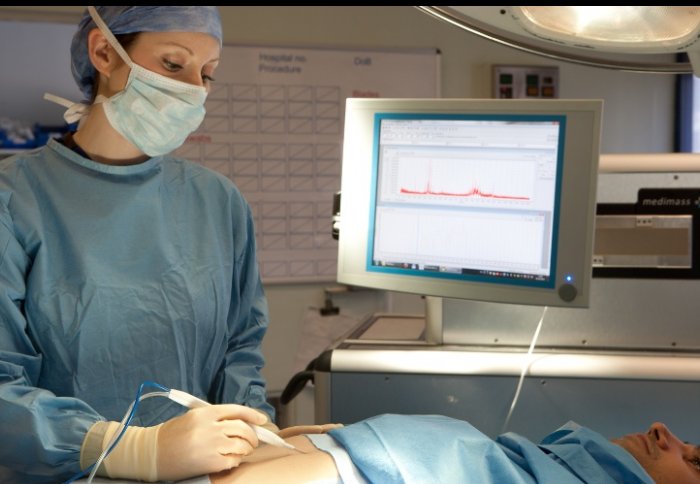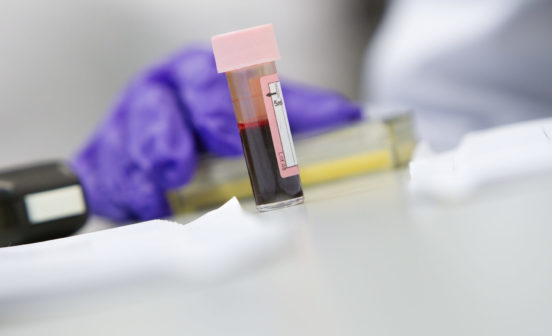DeviceTherapeutic Validation of the iKnife

At present, a number of breast cancer patients are having to undergo additional surgery following lumpectomy, due to unclear margins of resection. Our work, which started as a project in our current Imperial BRC Stratified Medicine theme on the development of iKnife technology, has demonstrated 0% margins and is about to undergo a breast and glioma clinical trial.
The iKnife heats tissue as it cuts to make a clean incision. Smoke from the tissue is ionised using Rapid Evaporative Ionisation Mass Spectrometry (REIMS) technology and analysed using a mass spectrometer, providing information about the chemical composition of the cells.
This translational research will save the NHS a considerable sum in minimising return surgery, as triennially around 11,00 patients undergo reoperation after failed breast conservation, which costs £2,020 per operation. In addition, this will positively impact on improving patient experience by improving cosmetic and functional outcome, and reducing surgical trauma and unnecessary removal of healthy tissue. This work is scalable and translatable to any solid tumour type as well as inflammatory bowel diseases.
These research findings have not only benefitted patients, they have impacted on the economy as well. The Waters Corporation has a major research and manufacturing centre in the UK. We are working closely with them to create next generation surgical and metabolic phenotyping tools. This has already had major impacts as the Waters Corporation has realigned its healthcare business plan to be harmonised with the Imperial research programmes centred on the CPC and the NPC (iKnife and molecular phenotyping of biofluids).
Also, the National Phenome Centre’s aim is to deliver broad access to a world-class capability in metabolic phenotyping, that will benefit the UK translational medicine community. It is contributing significantly to job creation and UK sales with an estimated £20 million new sales of instruments built in Manchester.


